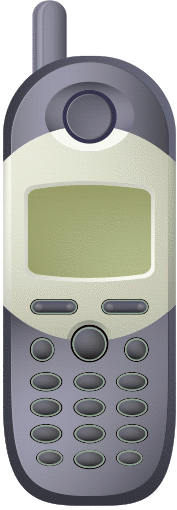Being Prepared for the Worst in a Time of Disaster - Part 2
|
|
By now, we've all seen the videos and pictures, and we've all heard the stories and the personal accounts of how people were affected. Needless to say, April 27th, 2011, was without a doubt one of the largest disasters in Alabama history. Statistically speaking, outbreaks of that magnitude only happen every 30 or 40 years, which makes April 27th an anomoly. However, Alabama is always staring down the barrel of the gun when it comes to natural disasters. Between severe weather season and tropical weather season, it seems we are always in the crosshairs. Now is the time to prepare yourself and your family for the next disaster. Have an Emergency Kit ready and a Disaster Plan in place, and be informed so you don't get caught off-guard. The following is the final part a 3-part series to help you do just that.
|
| Have a Disaster Plan in Place |
|
As Gene Hackman said in the movie "Crimson Tide", disasters do not happen when everything is hunky-dory. Your family may not be together when disaster strikes, so how will you contact one another? How will you get back together? Every memebr of your family needs to know what to do in different emergency situations. Therefore, it is imperative that you plan ahead. Here are some suggestions (adapted from www.ready.gov):
|
-
Identify an out-of town contact. It may be easier to make a long-distance phone call than to call across town, so an out-of-town contact may be in a better position to communicate among separated family members.
-
Be sure every member of your family knows the phone number and has a cell phone, coins, or a prepaid phone card to call the emergency contact. If you have a cell phone, program that person(s) as "ICE" (In Case of Emergency) in your phone. If you are in an accident, emergency personnel will often check your ICE listings in order to get a hold of someone you know. Make sure to tell your family and friends that you’ve listed them as emergency contacts.
-
Teach family members how to use text messaging (also knows as SMS or Short Message Service). Text messages can often get around network disruptions when a phone call might not be able to get through.
-
Subscribe to alert services. Many communities now have systems that will send instant text alerts or e-mails to let you know about bad weather, road closings, local emergencies, etc. Sign up by visiting your local Office of Emergency Management web site.
|
 |
|

|
Planning to Stay or Go
Depending on your circumstances and the nature of the emergency, the first important decision is whether you stay where you are or evacuate. You should understand and plan for both possibilities. Use common sense and available information, including what you are learning here, to determine if there is an immediate danger. In any emergency, local authorities may or may not immediately be able to provide information on what is happening and what you should do. However, you should watch TV, listen to the radio or check the Internet often for information or official instruction as it becomes available.
|
| Help with Emergency Plans |
|
Use the New Online Family Emergency Planning Tool created by the Ready Campaign in conjunction with the Ad Council to prepare a printable Comprehensive Family Emergency Plan.
Additionally, you may also want to inquire about emergency plans at places where your family spends time: work, daycare and school. If no plans exist, consider volunteering to help create one. Talk to your neighbors about how you can work together in the event of an emergency. You will be better prepared to safely reunite your family and loved ones during an emergency if you think ahead and communicate with others in advance.
|
|
Remember, taking care of these things ahead of time could save your life, as well as the lives of your loved ones. Plan ahead! Part 3 of "Being Prepared for the Worst in a Time of Disaster" will include "Being Informed".
View Part 1: "Have an Emergency Kit Prepared Ahead of Time"
View Part 3: "Be Informed"
|
|